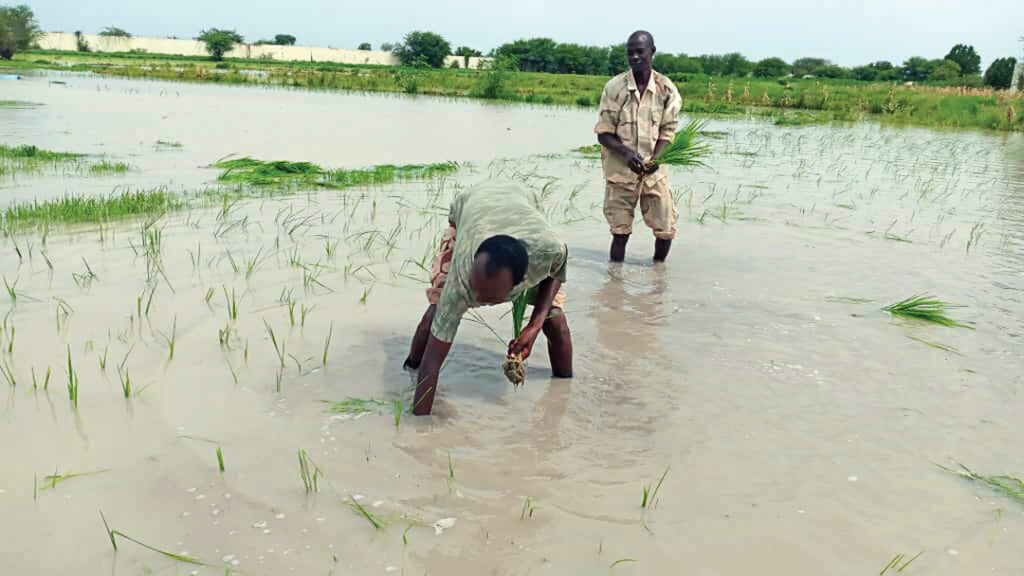ADF STAFF
A pilot project by Chad’s Armed Forces aims to create a self-sustaining food supply for the military by developing farms on military outposts.
Graduates of the Chadian Army Farm School started the first on-base farm at the military’s training center in Koundoul. The tilled and irrigated farm, which covers about 6.5 hectares within the military compound, has raised crops such as rice, okra, beans, melons, hibiscus, tomatoes, eggplant and onions.
“The creation of the Land Forces Farm jump-started skills we learned at Koundoul,” Lt. Adam Eritero Cordubo, a 2019 graduate of the farm school, told ADF. “Our skills from the school are used daily here.”
The produce grown on the farm feeds Soldiers at the Koundoul base and at the headquarters of the Chadian Land Forces in N’Djamena. Part of the crop goes into long-term storage and into a seed bank for future plantings.
“In this way, the pressure on the Army to take food from the markets around the capital, N’Djamena, is reduced, which is a definite advantage for civilians,” Ladiba Gondeu, a social anthropologist at the University of N’Djamena, told ADF.
Chadian Land Forces include 28,000 Soldiers in 12 zone commands and eight training centers spread across nearly 1.3 million square kilometers. Chadian forces are key to the G5 Sahel Joint Force, which is fighting extremists across the region between the Sahara and tropical Africa.
“Logistics of any sort is a highly challenging topic to address,” Stuart Bracken, an advisor to the Land Forces with U.S. contractor Apogee Systems Corp., told ADF. Bracken provided financial and logistical assistance to launch the farm program.
The Army Farm School began in 2008 with financial help from the French Embassy to give Soldiers skills they could use to make a living after they left military service. Since then, the school has trained 100 people to farm.
Agriculture makes up about 52% of Chad’s economy and employs 80% of its labor force. Despite that, food security is a constant challenge. Droughts, regional conflicts and a lack of arable land often reduce the amount of food the country can produce, leading to shortages, according to the United Nations World Food Programme.
The Koundoul project ensures a reliable food source for the nation’s military while putting to use the skills Soldiers develop at the farm school. Along with the 6.5 hectares under plow, the Koundoul project also added a 47-square-meter farm building with an office and storage space.
The first farm was developed as a test case. If military leaders support it and it finds funding, the farm project could be replicated across all 12 zones.
The Land Forces’ skilled farmers are ready to make their mark.
“We hope through our work to make the command better, but we need support,” said Capt. Mohammed Ismael Ahamet, another 2019 farm school graduate. “With further support we will be able to support the command and country at full power.”


1 Comment
Good progress,I think the project that has been developed by the Chadian Army has taken more of different approach in terms of food security to facilitate both soldiers and civilians.Veterans will also benefit from the project after they hang their boots that they can be able to invest in agriculture.Good effort